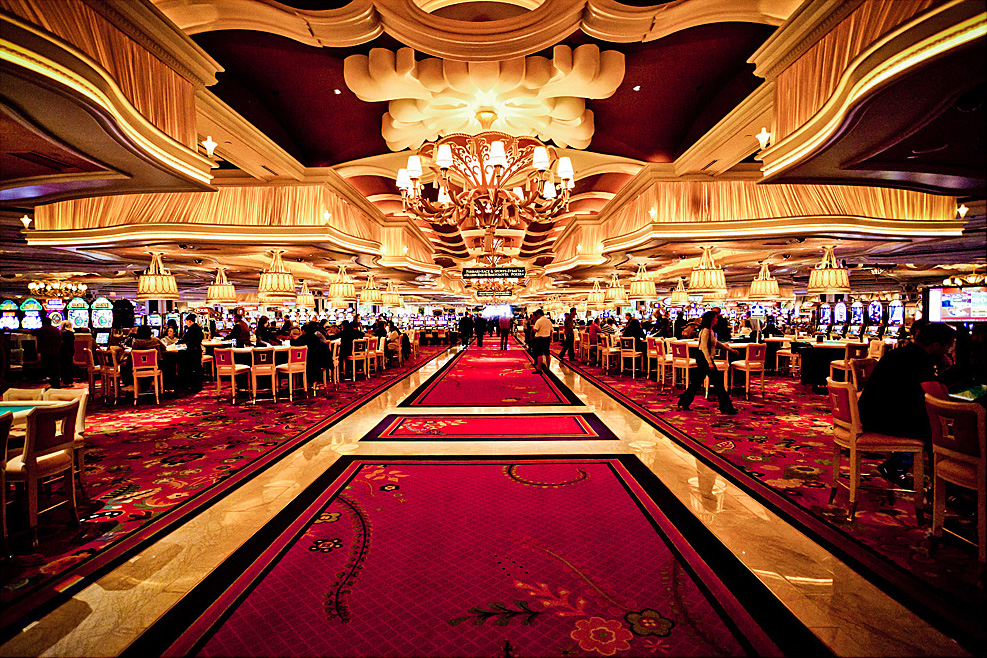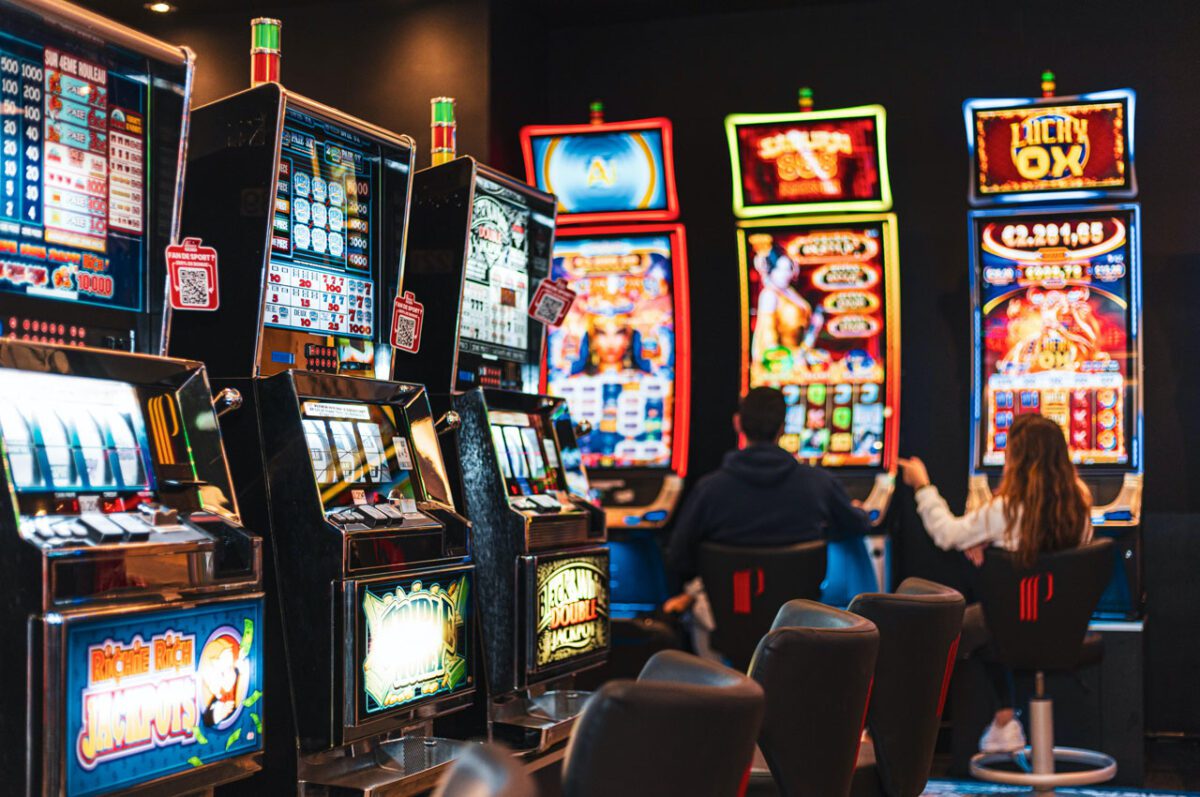Trong thế giới giải trí hiện đại, casino slot đã trở thành một biểu tượng không thể thiếu trong các sòng bạc. Với âm thanh vui tai và hình ảnh sắc nét, những máy slot này không chỉ thu hút người chơi bằng cơ hội giành chiến thắng lớn mà còn mang đến những trải nghiệm giải trí thú vị. Đằng sau mỗi vòng quay là một hành trình đầy hứng khởi, nơi mà vận may có thể đến bất cứ lúc nào.
Những trò chơi slot không chỉ đơn thuần là việc nhấn nút và chờ đợi kết quả. Mỗi trò chơi đem lại một chủ đề riêng biệt, từ các câu chuyện thần thoại đến những hình ảnh quen thuộc trong cuộc sống hàng ngày. Khi bạn tham gia vào thế giới này, bạn không chỉ đang kiếm tìm vận may mà còn khám phá một không gian đầy màu sắc và sáng tạo. Hãy cùng nhau bước vào cuộc phiêu lưu này để tìm hiểu xem casino slot có gì hấp dẫn và tại sao chúng lại trở thành lựa chọn yêu thích của nhiều người chơi trên toàn thế giới.
Cách Chọn Slot Máy Thích Hợp
Khi tham gia vào thế giới slot máy casino, việc chọn một trò chơi phù hợp là rất quan trọng để tối ưu hóa trải nghiệm chơi. Trước hết, người chơi nên xem xét loại slot mà mình muốn thử sức. Có nhiều loại khác nhau như slot cổ điển, video slot và progressive jackpot. Mỗi loại mang lại cảm giác và cơ hội thắng khác nhau, do đó, bạn nên tìm hiểu kỹ về tính năng và cách chơi của từng loại trước khi quyết định.
Ngoài ra, tỷ lệ hoàn trả cho người chơi (RTP) cũng là một yếu tố quan trọng không thể bỏ qua. RTP là phần trăm số tiền cược mà slot máy sẽ trả lại cho người chơi trong thời gian dài. Hãy tìm những slot máy có tỷ lệ RTP cao, thường từ 95% trở lên, vì điều này có thể giúp tăng cường khả năng thắng của bạn. Chọn slot với RTP cao không chỉ giúp bạn có cơ hội thắng nhiều hơn mà còn đảm bảo rằng bạn sẽ có trải nghiệm chơi thú vị hơn.
Cuối cùng, đừng quên xem xét mức cược và ngân sách của mình. Mỗi slot máy có giới hạn cược khác nhau, vì vậy bạn cần chọn một trò chơi phù hợp với mức ngân sách mà bạn sẵn sàng chi. Ngoài ra, việc thử nghiệm một số slot machines miễn phí cũng là một cách hay để tìm ra trò chơi nào phù hợp với phong cách chơi của bạn mà không phải rủi ro mất tiền. Hãy là một người chơi thông minh và có chiến lược trong việc chọn slot máy casino nhé.
Chiến Lược Chơi Slot Hiệu Quả

Khi tham gia chơi slot tại casino, một chiến lược hiệu quả có thể giúp bạn tối ưu hóa cơ hội chiến thắng. by88 Đầu tiên, bạn nên lựa chọn loại máy slot phù hợp với mình. Có nhiều loại máy khác nhau với tỷ lệ trả tiền (RTP) khác biệt. Những máy có RTP cao thường mang lại cơ hội thắng lớn hơn. Hãy dành thời gian tìm hiểu và chọn ra những máy slot phổ biến và được yêu thích nhất, vì chúng thường có cơ chế trả thưởng tốt hơn.
Tiếp theo, quản lý ngân sách là yếu tố quan trọng trong việc chơi slot hiệu quả. Bạn nên xác định mức ngân sách cụ thể cho mỗi lần chơi và tuyệt đối không vượt quá mức đó. Phân chia số tiền bạn có thành các phần nhỏ hơn, mỗi phần dành cho một phiên chơi riêng lẻ. Điều này không chỉ giúp bạn kéo dài thời gian chơi mà còn giảm thiểu rủi ro mất mát lớn trong một lần chơi.
Cuối cùng, hãy tận dụng các chương trình khuyến mãi và ưu đãi từ casino. Nhiều casino cung cấp các gói thưởng, miễn phí quay hoặc điểm thưởng cho người chơi. Sử dụng những ưu đãi này có thể gia tăng thêm số vốn của bạn, giúp bạn có thêm cơ hội chơi mà không cần phải chi quá nhiều tiền. Hãy luôn theo dõi các khuyến mãi và lựa chọn thời điểm phù hợp để tối đa hóa lợi ích từ việc chơi slot.
Những Lợi Ích Khi Chơi Slot Máy
Chơi slot máy tại casino mang lại nhiều lợi ích thú vị cho người chơi. Đầu tiên, đây là một hình thức giải trí đơn giản và dễ tiếp cận. Người chơi không cần phải có kiến thức sâu về các trò chơi khác như poker hay blackjack, chỉ cần đặt cược và quay cuộn. Những hình ảnh đẹp mắt và âm thanh hấp dẫn từ các slot máy khiến cho người chơi dễ dàng bị cuốn hút.
Thứ hai, slot máy thường có cơ hội trúng thưởng cao. Với tỷ lệ hoàn trả cho người chơi (RTP) thường khá cao, người chơi có cơ hội hơn để giành được phần thưởng lớn. Ngoài ra, nhiều trò chơi slot còn có chức năng jackpot và các vòng quay miễn phí, tạo ra cơ hội thắng lớn hơn. Điều này không chỉ mang lại cảm giác hồi hộp mà còn tạo ra niềm vui khi chờ đón kết quả.
Cuối cùng, việc chơi slot máy cũng có thể giúp người chơi kết nối với cộng đồng. Nhiều casino hiện nay tổ chức các giải đấu slot, nơi người chơi có thể cạnh tranh với nhau và giao lưu. Điều này tạo ra một không khí vui vẻ, đồng thời nâng cao trải nghiệm chơi game. Hơn nữa, việc chia sẻ kinh nghiệm, mẹo chơi với những người cùng sở thích cũng là một phần thú vị của hành trình khám phá thế giới slot máy.


